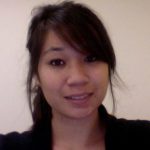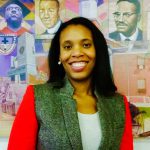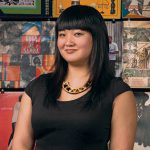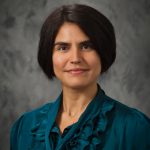In 2010, the Digital Library Federation made a positive change and commitment to being a more open organization, welcoming members from all parts of the digital library community, soliciting contributions to the annual Forum from members and non members alike, and making every effort to connect conversations that extend beyond our organizational borders. Our community grew as a result, and our DLF Forum events have been enriched with new, dynamic voices and valuable perspectives.
The DLF Forum is fairly gender-balanced both for speakers and attendees. However, we seek to increase participant diversity. To this end, we began partnering with the Association of Research Libraries (ARL) in 2013 to welcome Forum Fellows from Underrepresented Groups.
 These fellowships are generously supported by the ARL.
These fellowships are generously supported by the ARL.
ARL+DLF Fellows may be part of or nominated by a DLF member institution, or otherwise can identify their institutions as community colleges, historically black colleges or universities (HBCUs), tribal colleges or universities (TCUs), or state, local, or regional tribal governments. Fellows are interested in actively contributing to the DLF Forum and themselves represent a traditionally underrepresented group. This may include, but is not limited to, people of Hispanic or Latino, Black or African-American, Asian, Native Hawaiian or Pacific Islander, or American Indian or Alaskan Native descent. Applications from people who could contribute to the diversity of the Forum in other ways are also warmly welcomed.
Congratulations to our 2015 ARL + DLF Fellows from Underrepresented Groups!
Meet the 2015 Fellows

Jasmine Jones
Metadata and Technical Services Archivist
Smith College
@jmjones27
I am the Metadata and Technical Services Archivist at Smith College Special Collections, where I lead efforts to develop policies and procedures for archival collection and special collections digital asset management. Previously I served as Project Manager for the Los Angeles Aqueduct Digital Platform at UCLA Library Special Collections and contributed to the development of the UCLA Library Special Collections Digital Project Toolkit. DLF, to me, is the confluence of all things digital—as it relates to the library, special collections, technical services and systems, and research and teaching—and I look forward to learning and thinking through the projects and ideas contributed at DLF. I see participation at the DLF Forum as a means of not only connecting Smith to the individuals and institutions who we see as models for digital initiatives, but also as a way to think deeply about the implications of the digital infrastructure we are planning to implement.

Shanée Yvette Murrain
Seminary Archivist, Bishop Reverdy C. Ransom Memorial Library
Payne Theological Seminary
Shaneemurrain.blogspot.com
As the first Seminary Archivist at Payne Theological Seminary my primary work involves curating the Payne Theological Seminary and African Methodist Episcopal Church Digital Archive, a collaborative project between the Internet Archive and Princeton Theological Seminary’s Theological Commons Digital Initiative. Prior to joining the staff at Payne Theological Seminary, I served as the Reference and Public Services Librarian and Project Coordinator for the Religion in North Carolina Digital Collection at the Duke Divinity School Library. My research interests include digital literacy, African American religious history and archival evidence of how respective religious traditions engaged with social justice.
The DLF Forum is the perfect environment to dialogue with a diverse group of colleagues about providing quality digital resource instruction that will attract new patrons to our collections and encourage self-mastery of conducting research. I am especially excited about the opportunity the DLF Forum will give me to learn about best practices for curating collections of born-digital materials, building advocacy and support for digital libraries and how small repositories can go about selecting and financially supporting digital platforms. I look forward with great anticipation to hearing how other scholars understand digital inclusion and civic engagement.

T-Kay Sangwand
Archivist for Human Rights Documentation Initiative | Librarian for Brazilian Studies at Nettie Lee Benson Latin American Collection, University of Texas at Austin
@tttkay
Hi! My name is T-Kay Sangwand and I’m the Human Rights Archivist and Librarian for Brazilian Studies at UT Austin. For the past six years, I’ve been working with human rights organizations in Africa, Asia, Latin America and the US on collaborative archiving projects using the post-custodial archival model. I’m currently Co-Principal Investigator on a Mellon funded project, “Post-Custodial Archival Development and Digital Scholarship: Learning from Latin America” that aims to build archival collaborations with archival institutions in Latin America and work closely with scholars to build the resulting digital archival material into their research and teaching in innovative ways. I’m excited to attend DLF for the first time and learn from colleagues who are also engaging in inter-institutional collaborations and implementing digital scholarship initiatives.

Yasmeen Shorish
Physical & Life Sciences Librarian and Assistant Professor
James Madison University
@yasmeen_azadi
https://staffweb.lib.jmu.edu/users/shorisyl
As the point person for research data management (RDM) consulting on my campus, I can’t afford to keep a narrow perspective on the work of digital curation. I am curious to see if the wide array of representation at DLF will bear unique, yet transferable, approaches to RDM and the role of digital stewardship and research. I am looking forward to the Forum for the opportunity to learn from a larger landscape of digital scholarship and take that knowledge back to my institution to work towards impactful and sustainable practices. In order to build effective strategies that can be put into practice in a sustainable way, I believe that it is imperative to build a community of practice that is strong and diverse (in all meanings of that word).
The Award in 2015
Up to four fellowships will be awarded, each up to $1,250, to be applied towards travel, board, and lodging expenses associated with attending a DLF Forum. Additionally, the fellows will each receive a complimentary full registration to the Forum ($475). Fellowship recipients will be required to write a blog post about their experience, subsequent to the Forum; this blog post will be published by DLF.
Eligibility
Preferred applicants will come from or be nominated by a current DLF member institution, or otherwise identify their institution as one of the following:
- Community colleges
- Historically Black Colleges and Universities (HBCU)
- Tribal Colleges and Universities (TCU)
- State, local, or regional tribal governments
To qualify for this fellowship, an applicant must be interested in actively contributing to the DLF Forum and be part of a traditionally underrepresented group including, but not limited to, people of Hispanic or Latino, Black or African-American, Asian, Native Hawaiian or Pacific Islander, or American Indian or Alaskan Native descent. Only one fellowship per institution will be granted.
Application
Applications were due by 4:00pm EDT on Friday, May 22, 2015.
Use the email subject line “UG Fellowship: [Your Name]” and attach one document containing the following items:
- Cover letter of nomination from someone at a DLF member institution or for those from a community college, HBCU, TCU, or tribal government, a letter of nomination from their supervisor, dean, or appropriate organizational leader.
- Personal statement from the candidate (ca. 500 words) explaining their digital library involvement, how they see themselves benefiting from/participating in the DLF Forum, indication of eligibility, and statement of need.
- A current résumé.
Evaluation
Fellows were selected by the DLF Forum Program Planning Committee. In assessing the applications, the Committee will look for:
- A demonstrated commitment to digital library work
- How the applicant intends to benefit from/participate in the Forum
- Eligibility status and statement of need
The winning applicants must be able to travel to Vancouver, British Columbia from October 26–28.
